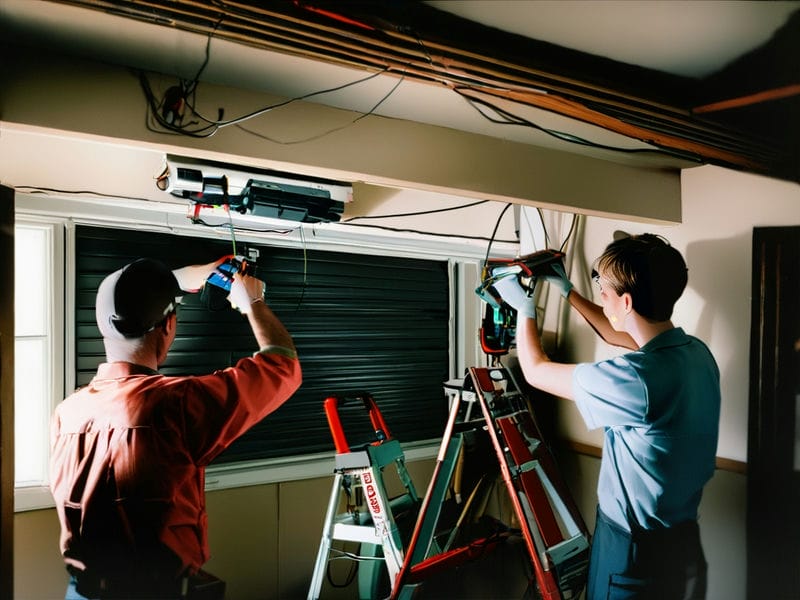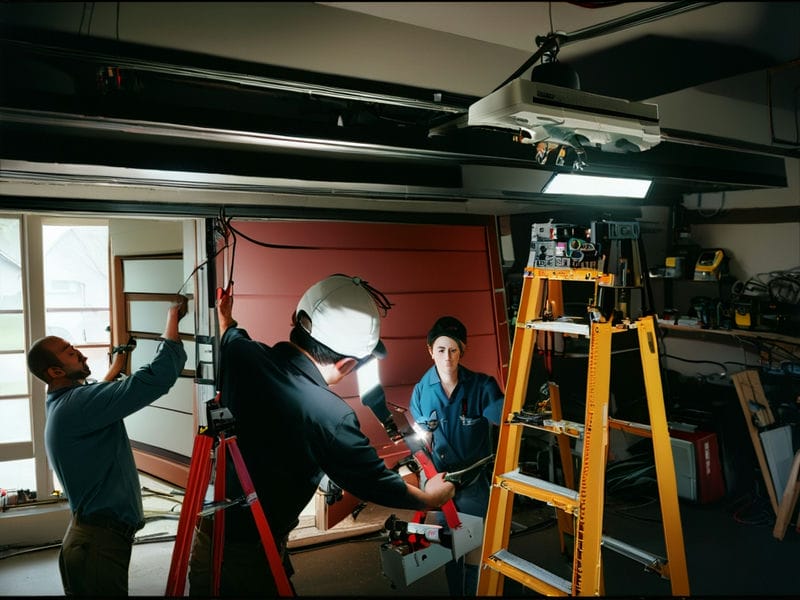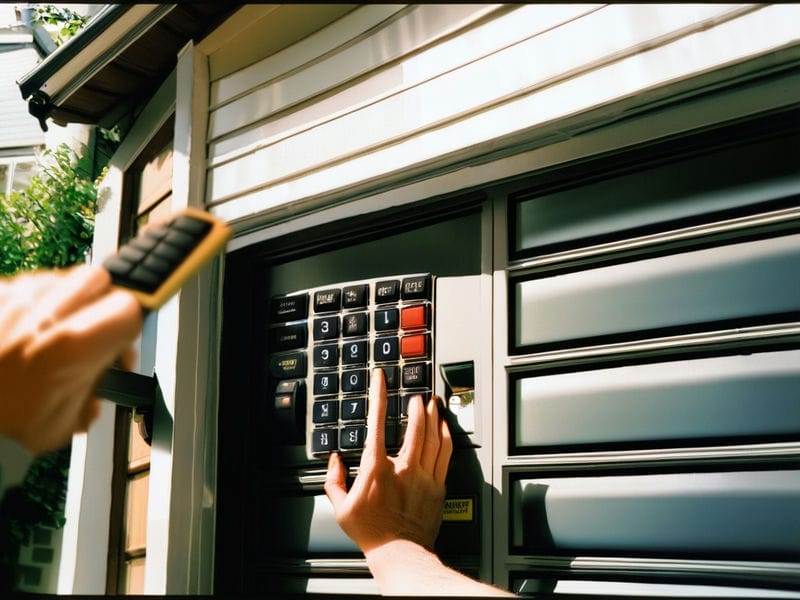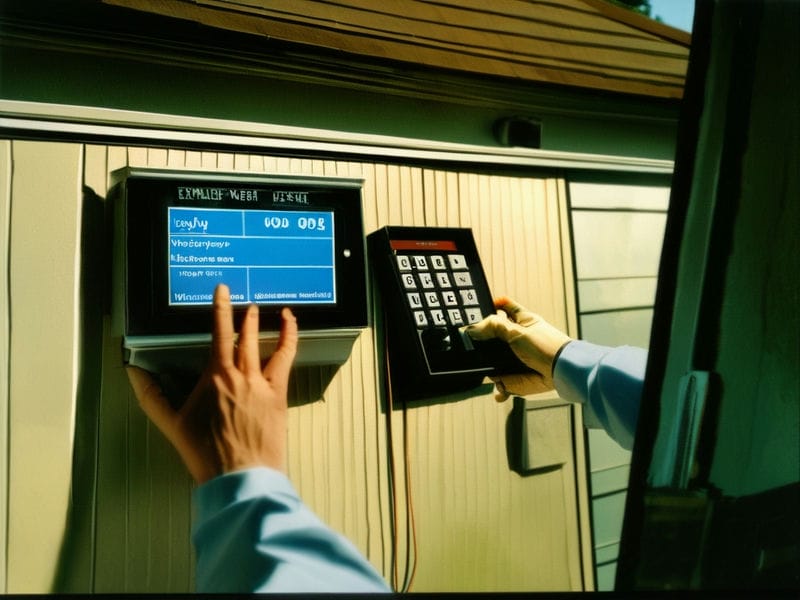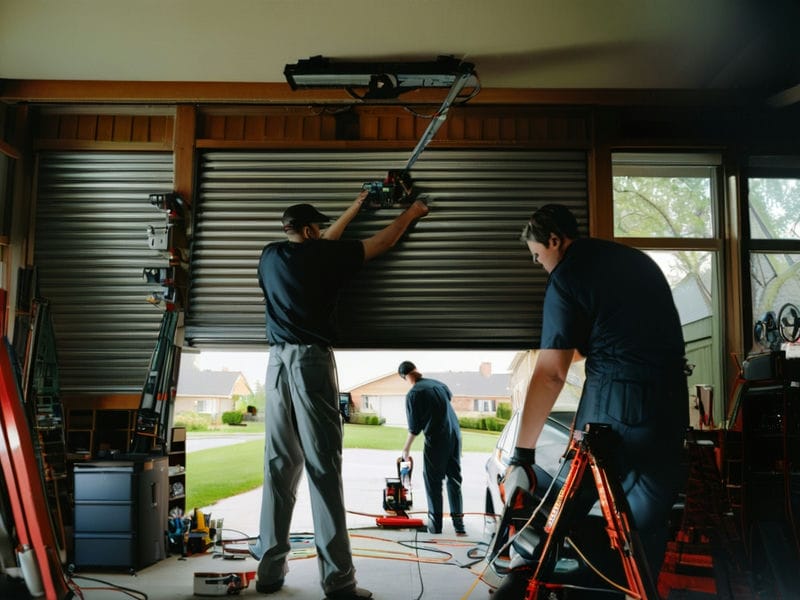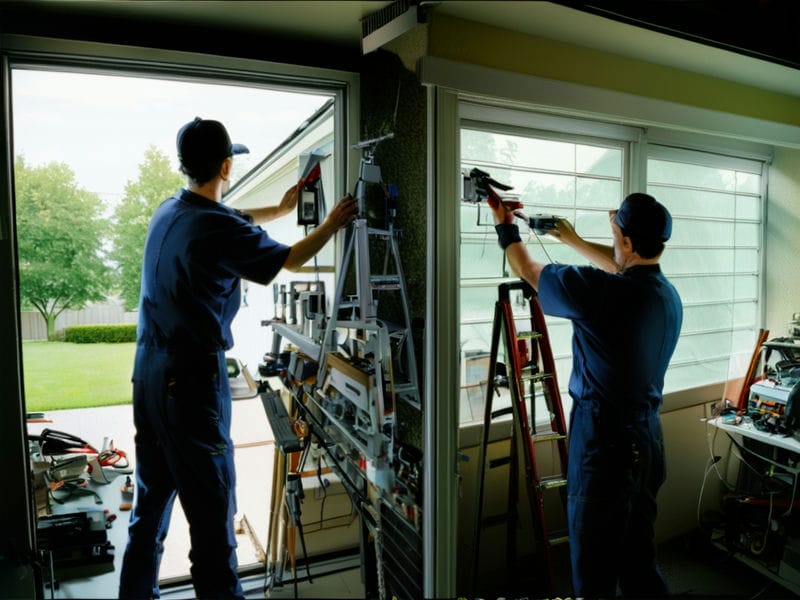
Choosing the Right Insulation for Your Garage
Explanation of how poor insulation can lead to energy loss and increased utility bills
Insulating your garage may not be the first thing that comes to mind when thinking about home improvement projects, but it is actually a very important step in creating a more comfortable and energy-efficient space.
Proper insulation in your garage can help regulate the temperature, keeping it cooler in the summer and warmer in the winter. This not only makes it more pleasant to work in, but also helps reduce energy costs by making your heating and cooling systems more efficient.
In addition to regulating temperature, insulation can also help reduce noise from outside sources, such as traffic or loud neighbors. This can make your garage a quieter and more peaceful place to spend time.
Our team offers garage door insulation services Energy-Saving HVAC Upgrades for Garages wear and tear. We install both residential and commercial garage doors repair garage door electrical connector.
Insulation also provides an extra layer of protection against moisture and condensation, which can lead to mold growth and other damage over time. By properly insulating your garage, you can prevent these issues and prolong the life of your belongings stored inside.
Overall, investing in good insulation for your garage is a smart decision that will pay off in increased comfort, energy savings, and protection for years to come. So when choosing the right insulation for your garage, consider factors such as R-value, material type, and installation method to ensure you get the most benefits out of this important home improvement project.
